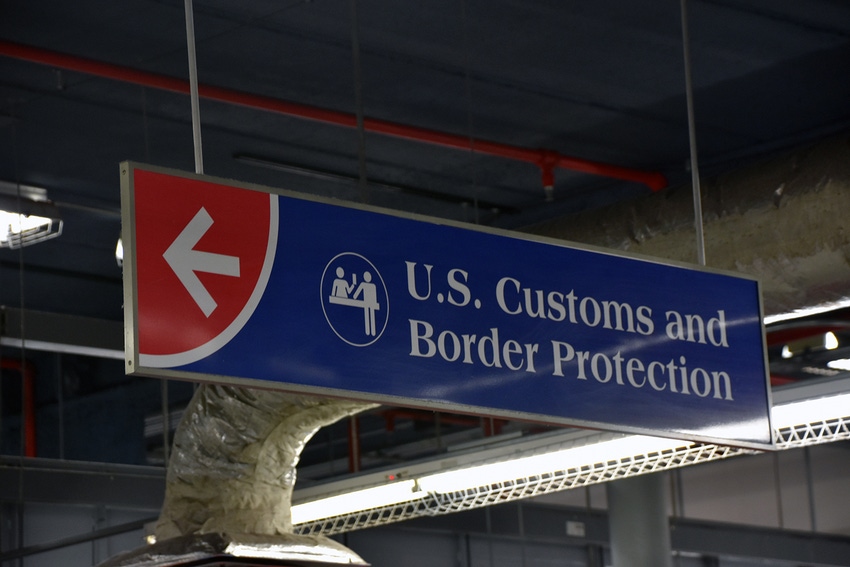APHIS strengthens Agricultural Quarantine and Inspection Program
Foreign diseases, such as African swine fever, could devastate the industry, by cutting off export markets and spurring costly eradication programs.
April 29, 2024

The USDA Animal and Plant Health Inspection Service is amending its Agricultural Quarantine and Inspection program user fees. This user-fee funded program protects U.S. farms and forests from the impacts that damaging invasive pests and destructive diseases cause. The new fee structure will go into effect Oct. 1, 2024. The effective date for removal of the small aircraft exemption will be April 1, 2025.
A copy of the rule available today at AQI User Fees Explained | Animal and Plant Health Inspection Service and the rule will be published in the Federal Register in the coming weeks.
The AQI program assures that cargo bringing goods from other countries and baggage carried into the U.S. by international travelers is inspected. Agricultural officials are looking for plant pests and potential sources of animal diseases that could affect U.S. agriculture and natural resources, along with our ability to trade and conduct commerce. Foreign pests and diseases, such as African swine fever or invasive fruit flies, can devastate U.S. agriculture and our economy by halting trade, cutting off export markets, and spurring costly eradication programs.
APHIS and the U.S. Department of Homeland Security’s Customs and Border Protection work together to administer this highly successful and critically important program that is the backbone of our safeguarding efforts. With CBP inspectors stationed at more than 200 ports of entry, this partnership is key to the program’s success.
The changes that go into effect later this year are necessary to allow the AQI program to recover the full costs of carrying out these vital safeguarding activities as required by The Food, Agriculture, Conservation and Trade Act of 1990. Fees for the AQI program were last updated in 2015. In recent years, the fees collected during AQI inspections have not recovered the full costs of the program.
Recent advances in the size and scope of commercial transportation have resulted in the need for APHIS to adjust these fees to account for the corresponding increase in cost of operations. The revisions to user fees will put the AQI program on sound financial footing.
The adjusted fee structure is as follows:
The revised fees, among other things, account for inflation, capital improvements and additional staffing needs. The regulatory changes account for actual and projected increases in the cost of doing business, increase fee payer accountability and align fees more accurately with the costs associated with each fee service.
APHIS and CBP will be able to protect U.S. agriculture, natural resources, family farms and suburban communities more effectively from harmful plant pests and diseases with this adjustment.
You May Also Like
.png?width=300&auto=webp&quality=80&disable=upscale)


